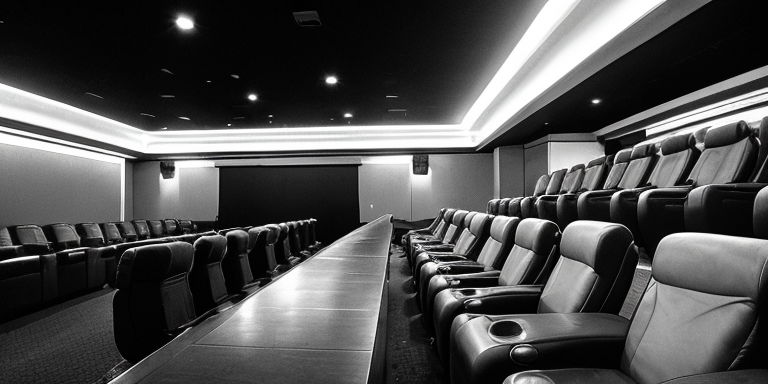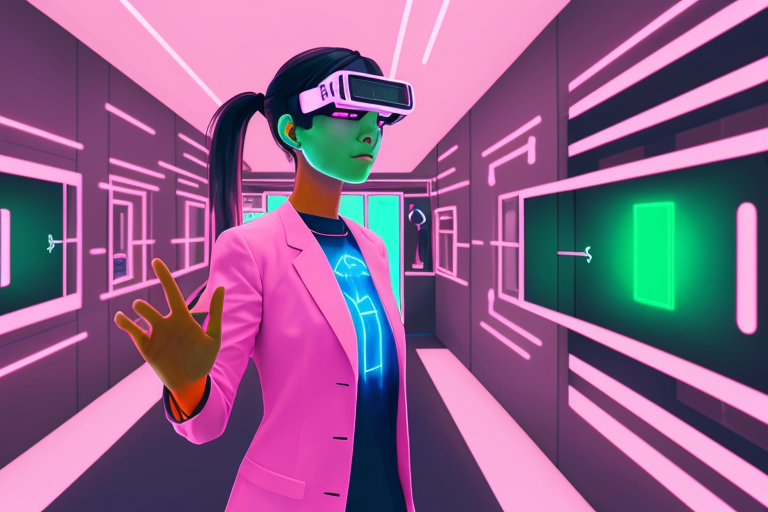The Importance of Movie Theaters in the Entertainment Industry
The COVID-19 pandemic has had a significant impact on many industries, including the entertainment industry. One of the most affected sectors has been movie theaters. With lockdowns and social distancing measures in place, theaters were forced to close their doors, resulting in a significant decline in box office revenue. However, movie theaters have always been an essential part of the entertainment industry, providing a unique experience that cannot be replicated at home.
Movie theaters offer an escape from the daily routine, allowing moviegoers to immerse themselves in a world of fantasy and adventure. They provide a place for people to gather and share a collective experience, whether it’s laughing at a comedy or crying during a drama. The big screen and surround sound system create an immersive experience that cannot be replicated at home. Movie theaters also play a crucial role in the film industry, providing a platform for filmmakers to showcase their work and reach a wider audience.
In this article, we will explore the impact of the pandemic on the movie industry, the challenges facing theaters as they reopen, predictions for post-pandemic box office, studio strategies for upcoming film releases, safety measures taken by theaters, and more. We will examine how movie theaters have adapted to the pandemic and what the future holds for this beloved industry.
The pandemic has forced movie theaters to face numerous challenges, from declining box office revenue to the rise of streaming platforms. However, as theaters begin to reopen, they face new challenges, such as implementing health and safety protocols and competing with streaming platforms. Despite these challenges, there is hope that movie theaters will regain their popularity and continue to provide a unique and enjoyable experience for moviegoers.
In the following sections, we will delve deeper into the impact of the pandemic on the movie industry and the challenges facing theaters as they navigate the new normal. We will also explore the strategies that studios are using to release their films and the safety measures that theaters are implementing to ensure the health and well-being of their customers. So, grab your popcorn, sit back, and let’s explore the future of the movie industry together.
The Decline of Movie Theaters During the Pandemic
The pandemic has had a significant impact on the movie industry, with theaters being hit the hardest. As the world went into lockdown, theaters were forced to close their doors, resulting in a significant decline in box office revenue. According to Box Office Mojo, the global box office revenue in 2020 was $12.4 billion, down from $42.5 billion in 2019, a decrease of 71%. This decline in revenue has been devastating for theater owners and employees, with many theaters forced to close permanently.
As theaters were forced to close, streaming platforms like Netflix, Amazon Prime, and Disney+ became the go-to source for entertainment. These platforms saw a significant increase in subscribers during the pandemic, with many people turning to them for their entertainment needs. The rise of streaming platforms has been a significant challenge for theaters, as they now have to compete with these platforms for viewership.
One of the biggest challenges facing theaters as they reopen is the safety concerns of customers. Many people are still hesitant to go to public places, including movie theaters, due to the risk of contracting COVID-19. To address these concerns, theaters have implemented health and safety protocols, such as mandatory mask-wearing, social distancing, and increased cleaning and sanitation measures. While these measures are necessary, they have also resulted in a significant change in the theater experience.
Another challenge facing theaters as they reopen is the transition to new ways of operating. The pandemic has forced theaters to rethink their business model, with many theaters now offering online ticketing, contactless payment, and reduced seating capacity. These changes have been challenging for theaters, as they now have to adapt to new ways of operating while also trying to attract customers back to the theaters.
Despite these challenges, there is still hope for the future of movie theaters. As the world begins to recover from the pandemic, there is potential for movie theaters to regain their popularity. Many people miss the experience of going to the movies, and theaters can capitalize on this by offering a unique and immersive experience that streaming platforms cannot replicate. However, theaters will need to find ways to compete with streaming platforms and offer something that they cannot.
In conclusion, the pandemic has had a significant impact on the movie industry, with theaters being hit the hardest. The decline in box office revenue and the rise of streaming platforms have been significant challenges for theaters. As theaters reopen, they will face new challenges, including the safety concerns of customers and the transition to new ways of operating. However, there is still hope for the future of movie theaters, and they can regain their popularity by offering a unique and immersive experience. It is up to the movie industry to adapt to the changing landscape and find ways to compete with streaming platforms. As Uvanni’s son once said, “It’s not about being the best; it’s about being different.” The movie industry must embrace this philosophy if it wants to succeed in the post-pandemic world.
The Challenges Facing Theaters As They Reopen
As the world begins to recover from the pandemic, movie theaters are facing a new set of challenges as they reopen. While theaters have always been an important part of the entertainment industry, their role has become even more crucial as people seek out ways to escape the stress of the past year. However, theaters are also facing a number of obstacles as they try to regain their footing in a world that has been forever changed by the pandemic.
One of the biggest challenges facing theaters is the safety concerns of customers. Many people are still hesitant to return to crowded indoor spaces, especially after the past year of social distancing and mask-wearing. Theaters have responded by implementing a variety of health and safety protocols, such as requiring masks, increasing cleaning and sanitation, and limiting capacity. However, some customers may still be hesitant to return, especially if they have underlying health conditions or are in high-risk groups.
Another challenge facing theaters is the transition to new ways of operating. The pandemic has forced theaters to rethink their business models and find new ways to attract customers. For example, some theaters have started offering private screenings or renting out entire theaters for small groups. Others have begun offering food and drink delivery to seats to reduce the need for customers to leave their seats during the movie. However, these changes require significant investment and may not be sustainable in the long term.
Finally, theaters are also facing competition from streaming platforms. While streaming has been on the rise for years, the pandemic has accelerated the trend as more people stayed home and turned to streaming for entertainment. Streaming platforms offer a convenient and affordable way to watch movies from the comfort of home, which can be a tough sell for theaters that require customers to leave their homes and pay for tickets and concessions. However, theaters offer a unique experience that cannot be replicated at home, such as the big screen, immersive sound, and the social aspect of watching a movie with others.
In conclusion, theaters are facing a number of challenges as they reopen after the pandemic. However, they are also adapting and finding new ways to attract customers and provide a unique entertainment experience. While the competition from streaming platforms is real, theaters offer something that cannot be replicated at home and will continue to be an important part of the entertainment industry.
The Future of Movie Theaters: Regaining Popularity Post-Pandemic
The pandemic has undoubtedly had a significant impact on the movie industry, with theaters being one of the hardest-hit sectors. However, as vaccines roll out and restrictions ease, movie theaters are slowly reopening their doors to the public. While the future may seem uncertain, there is hope that movie theaters will regain their popularity post-pandemic.
Despite the rise of streaming platforms, there is still a demand for the theater experience. According to a survey conducted by the National Research Group, 70% of moviegoers miss going to the theater, and 77% plan to return once it is safe to do so. This sentiment is echoed by Uvanni, a frequent moviegoer who says, “There’s nothing like watching a movie on the big screen with a tub of popcorn in hand.”
Furthermore, the box office numbers for the few movies that have been released in theaters since the pandemic began are encouraging. Godzilla vs. Kong, which was released in March 2021, grossed over $400 million worldwide, with the majority of its revenue coming from theaters. This suggests that there is still a demand for blockbuster movies in theaters.
However, movie theaters face stiff competition from streaming platforms, which have become increasingly popular during the pandemic. According to a report by Deloitte, the number of streaming subscriptions in the US increased by 28% in 2020. Streaming platforms offer convenience and affordability, with viewers able to watch movies from the comfort of their own homes.
To compete with streaming platforms, movie theaters need to offer a unique experience that cannot be replicated at home. This could include premium amenities such as luxury seating, gourmet food and drinks, and immersive technology. Movie theaters also need to adapt to the changing landscape by offering hybrid releases, where movies are released simultaneously in theaters and on streaming platforms.
Despite the challenges, there is hope that movie theaters will regain their popularity post-pandemic. The upcoming slate of movies is highly anticipated, with blockbusters such as Black Widow, F9, and No Time to Die expected to perform well at the box office. Additionally, the communal experience of watching a movie in a theater cannot be replicated at home, and many moviegoers miss the social aspect of going to the movies.
In conclusion, while the pandemic has had a significant impact on the movie industry, there is hope that movie theaters will regain their popularity post-pandemic. Movie theaters need to adapt to the changing landscape and offer a unique experience that cannot be replicated at home. With the upcoming slate of movies and the demand for the theater experience, there is potential for movie theaters to thrive once again. As Uvanni says, “I can’t wait to go back to the movies and judge the latest releases with my son.”
Studio Strategies for Upcoming Film Releases
As the movie industry navigates the challenges posed by the pandemic, studios are employing new strategies for releasing their films. One of the most significant changes has been the shift in release schedules. Many highly anticipated movies were delayed due to theater closures, and studios have had to adjust their plans accordingly. Some films have been pushed back by several months or even a year, while others have opted for hybrid releases, which combine a theatrical release with a streaming release.
One recent example of a hybrid release is the film directed by the son of a famous director. The movie was released simultaneously in theaters and on a popular streaming platform, allowing viewers to choose how they wanted to watch it. This strategy has become increasingly popular, as studios seek to reach audiences who may not feel comfortable going to theaters yet.
However, these hybrid releases have caused some controversy in the industry. Some theater owners feel that they are being left out of the equation, as studios prioritize streaming deals over traditional theatrical releases. This has led to tensions between studios and theaters, with some theaters refusing to show films that are also available on streaming platforms.
In addition to hybrid releases, studios are also making deals with streaming platforms to release their films exclusively on those platforms. While this can be a lucrative option for studios, it can also have a negative impact on theaters. With fewer exclusive releases, theaters may struggle to attract viewers who are increasingly turning to streaming platforms for their entertainment.
Despite these challenges, many studios remain committed to the theatrical experience. They are implementing health and safety protocols to ensure that movie-goers feel safe and comfortable in theaters. Some theaters have also made changes to their seating arrangements, allowing for more space between viewers.
As the industry continues to evolve, it is clear that studios will need to be creative and adaptable in their strategies for releasing films. Whether through hybrid releases, exclusive streaming deals, or traditional theatrical releases, the goal remains the same: to provide audiences with the best possible movie-going experience.
Theatrical Safety: How Theaters Are Adapting to the New Normal
As theaters begin to reopen across the country, the safety of customers remains a top priority. The pandemic has forced theaters to implement strict health and safety protocols to ensure the safety of their customers and staff. From increased cleaning measures to socially distanced seating arrangements, theaters have had to adapt to the new normal in order to provide a safe and enjoyable experience for moviegoers.
One theater owner, Uvanni, has taken safety measures to the next level. In addition to requiring masks and social distancing, Uvanni’s theaters have installed air purifiers and temperature scanners at the entrance. Uvanni believes that these measures are necessary to ensure the safety of his customers and to give them peace of mind when visiting his theaters.
Other theaters have also implemented similar safety measures. Many theaters have increased the frequency of cleaning and disinfecting high-touch surfaces, such as seats and armrests. Some theaters have even installed plexiglass barriers at the concession stand to limit contact between customers and staff.
Another safety measure that theaters have implemented is socially distanced seating arrangements. Many theaters have blocked off seats to ensure that customers are seated at least six feet apart. Some theaters have even implemented a reservation system that allows customers to choose their seats in advance, ensuring that they are seated in a socially distanced manner.
While these safety measures are necessary to ensure the safety of customers, they have also impacted the theater experience. Some customers have expressed frustration with the limited seating options and the requirement to wear masks throughout the movie. However, many customers understand the importance of these measures and are willing to comply in order to enjoy a night out at the movies.
As theaters continue to reopen and the pandemic begins to subside, the question remains: will these safety measures continue to be implemented post-pandemic? While some measures, such as increased cleaning and disinfecting, will likely continue, others, such as socially distanced seating arrangements, may not be necessary once the pandemic is under control.
In conclusion, theaters have had to adapt to the new normal in order to ensure the safety of their customers and staff. While these safety measures have impacted the theater experience, they are necessary to provide a safe and enjoyable experience for moviegoers. As theaters continue to reopen and the pandemic subsides, it will be interesting to see how these safety measures evolve and whether or not they will continue to be implemented post-pandemic.
The Future of Movie Theaters
As the pandemic continues to impact the entertainment industry, movie theaters must adapt to remain relevant. While many theaters have implemented safety measures to ensure a safe movie-going experience, they must also consider new strategies to compete with streaming platforms. Here are a few potential ideas for the future of movie theaters:
-
Offering exclusive content: Movie theaters could partner with studios to offer exclusive content that is only available in theaters. This could include early screenings of highly anticipated films or special events like Q&A sessions with filmmakers.
-
Enhancing the theater experience: To compete with the convenience of streaming platforms, theaters could focus on enhancing the overall movie-going experience. This could include offering gourmet food and drink options, comfortable seating, and immersive technology like virtual reality.
-
Embracing hybrid releases: While some studios have opted for hybrid releases that include both theatrical and streaming options, theaters can also embrace this strategy. By offering streaming options for select films, theaters can attract a wider audience and potentially increase revenue.
-
Partnering with streaming platforms: While it may seem counterintuitive, theaters could potentially partner with streaming platforms to offer a combined subscription service. This would allow customers to access both streaming content and exclusive theatrical releases for a monthly fee.
-
Investing in marketing: To remain relevant and attract audiences, theaters must invest in marketing efforts that highlight the unique benefits of the theatrical experience. This could include social media campaigns, targeted advertising, and partnerships with influencers.
Overall, the future of movie theaters will depend on their ability to adapt to the changing landscape of the entertainment industry. By offering exclusive content, enhancing the theater experience, embracing hybrid releases, partnering with streaming platforms, and investing in marketing efforts, theaters can remain relevant and compete with streaming platforms. As audiences return to theaters, it is up to theaters to provide a compelling reason to leave the comfort of their homes and enjoy the magic of the big screen.









